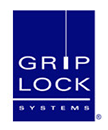Industry News
NLPIP Releases New Report On LED Lighting Products For Consumers
September 27, 2009
The National Lighting Product Information Program (NLPIP) has released its latest Lighting Answers, designed to address specific questions relevant to lighting professionals, contractors, and homeowners.
Lighting Answers: LED Lighting Products for Consumers provides information about general illumination light-emitting diode (LED) products currently found on retail shelves such as power failure lights, task lights, replacement lamps, night lights, and undercabinet luminaires. NLPIP testing is now underway on some of these products, and the results will be added to this report and made available online when complete.
“The LED holds great promise for lower energy consumption and reduced maintenance,” said Jeremy Snyder, manager of lighting programs at Rensselaer Polytechnic Institute’s Lighting Research Center, director of NLPIP, and author of the publication. “For years, LED products for general illumination were largely limited to commercial and specialty products. Now we are seeing a larger number of LED products for consumers hitting the retail shelves.”
For the project, NLPIP visited a variety of stores in the upstate New York region where people would typically buy light bulbs and luminaires for home improvement projects. The focus of the survey was on products readily accessible to people who shop for household and home improvement items.NLPIP did not survey any lighting showrooms or electrical distributors, nor were products available on the Internet examined. The full publication is available for free download.
A related NLPIP report also available is Lighting Answers: LED Lighting Systems, designed to help practitioners understand the differences between LEDs and other conventional light sources. The report describes the relevant characteristics important in understanding the effective use of LEDs in lighting applications including electrical, thermal, and optical performance.
The Lighting Answers series addresses specific questions about lighting products, systems, and subjects relevant to lighting decision makers. Additional NLPIP publication series include Specifier Reports, designed to provide an educational text and a combination of generic and brand name performance information for efficient lighting products and systems; Lighting Diagnostics, documenting actual cases in which NLPIP researchers have helped to diagnose and solve lighting problems; and Technical Guides, helping lighting specifiers choose lighting products and systems. All NLPIP publications are available online at www.lrc.rpi.edu/programs/NLPIP/publications.asp.
About the National Lighting Product Information Program (NLPIP)
NLPIP, established by the Lighting Research Center (LRC) in 1990, helps lighting professionals, contractors, designers, building managers, homeowners, and other consumers find and effectively use efficient, quality products that meet their lighting needs. With the support of government agencies, public benefit organizations, and electric utilities, NLPIP disseminates objective, accurate, timely, manufacturer-specific information about energy-efficient lighting products in its series of Lighting Answers, Lighting Diagnostics, Specifier Reports, and Technical Guides.
NLPIP sponsors include: the California Energy Commission’s Public Interest Energy Research (PIER) program; CEATI International; the Iowa Energy Center; the New York State Energy Research and Development Authority (NYSERDA); and the United States Environmental Protection Agency (US EPA).
NLPIP team members are LRC researchers and leading experts in efficient lighting, human factors, and technology transfer. The NLPIP product testing laboratory is one of only three non-manufacturer labs in the US accredited by the National Voluntary Laboratory Accreditation Program (NVLAP) for testing lighting products. NLPIP's research and product testing has spanned products such as compact fluorescent lamps (CFLs), T5 fluorescent systems, metal halide lamps, dimming ballasts, and occupancy sensors, as well as timely subjects such as light pollution, parking lot illumination, and alternative light sources for exit signs. For more information, visit www.lrc.rpi.edu/programs/NLPIP









































